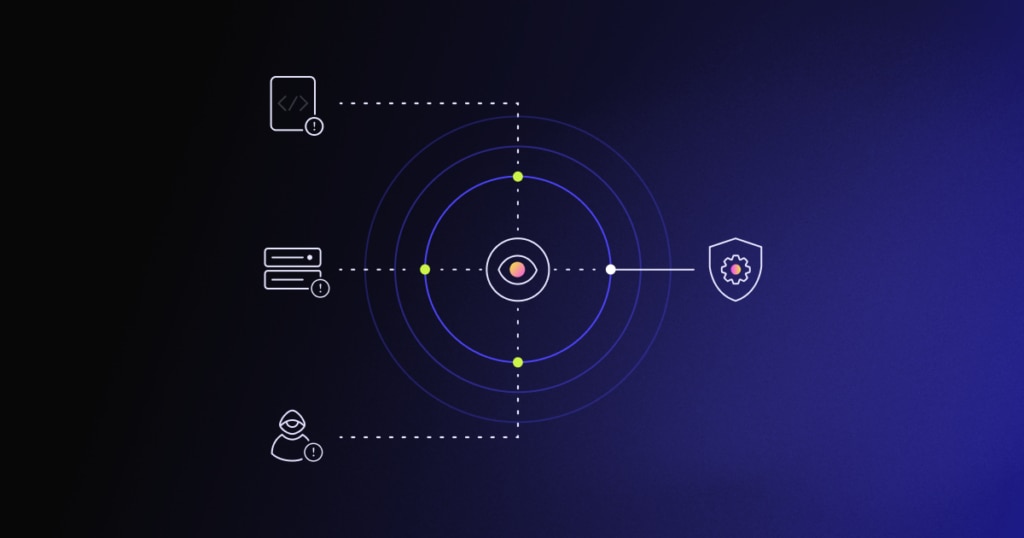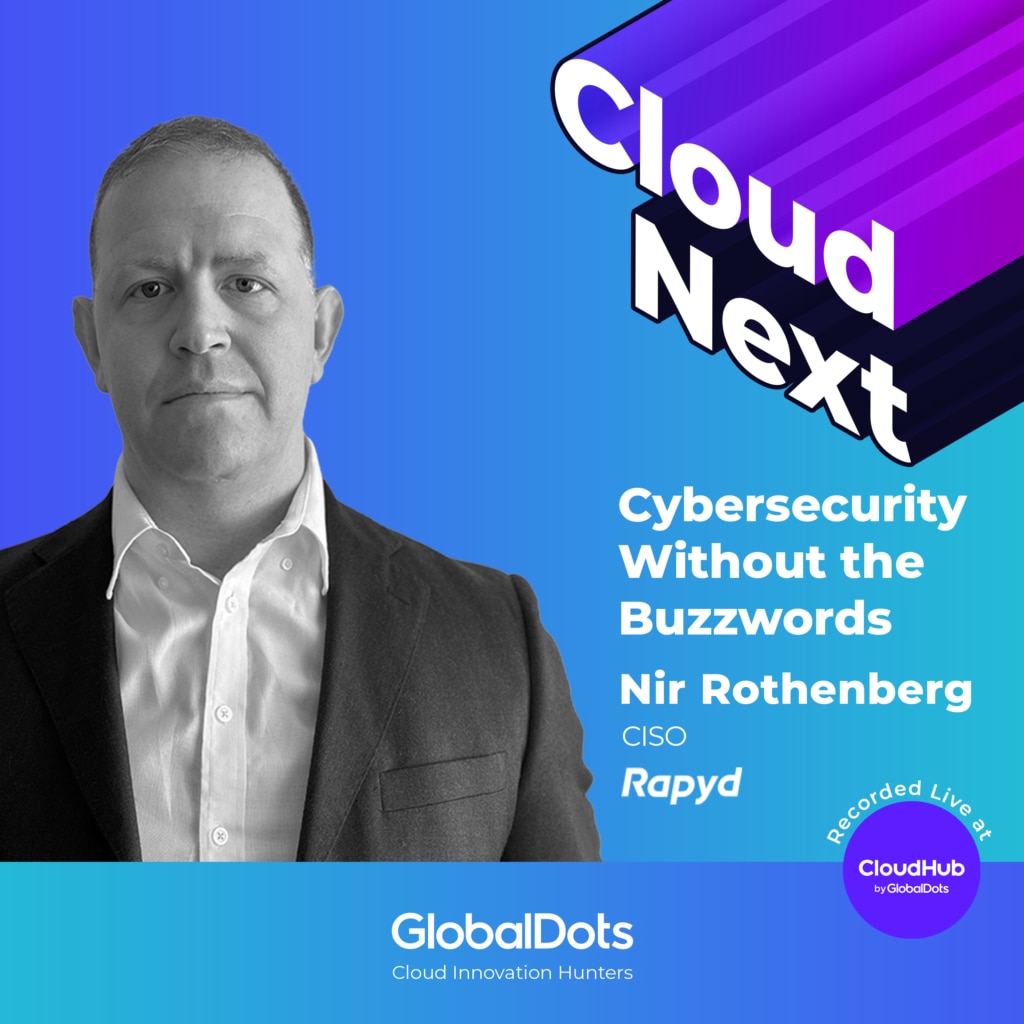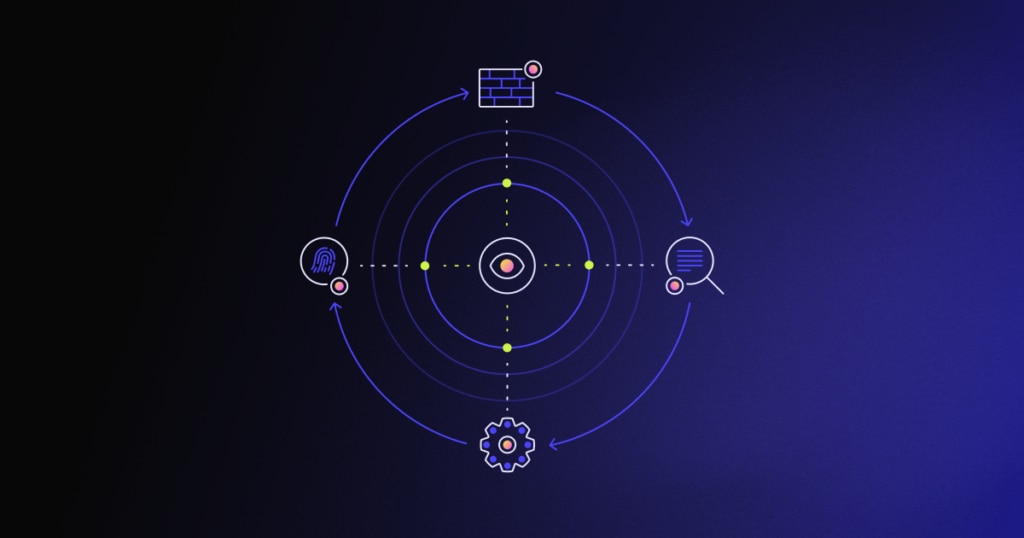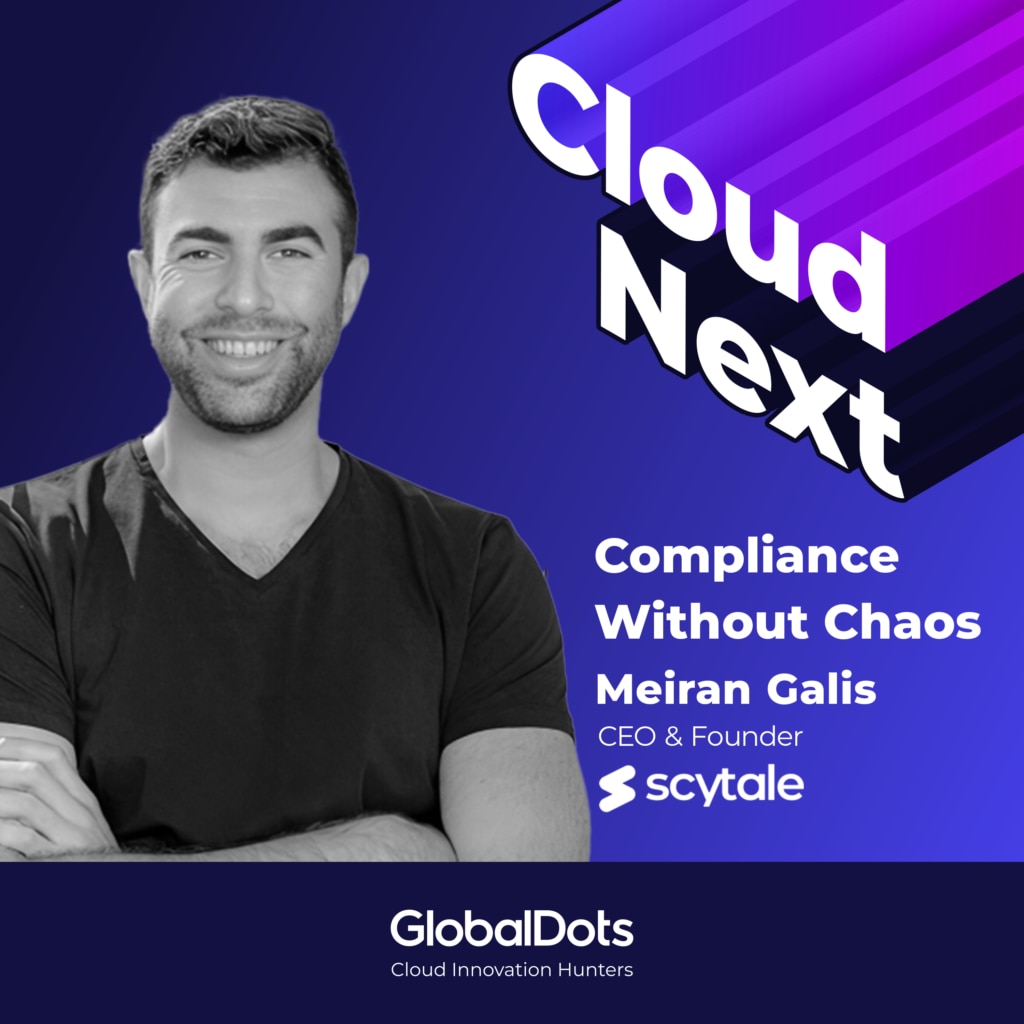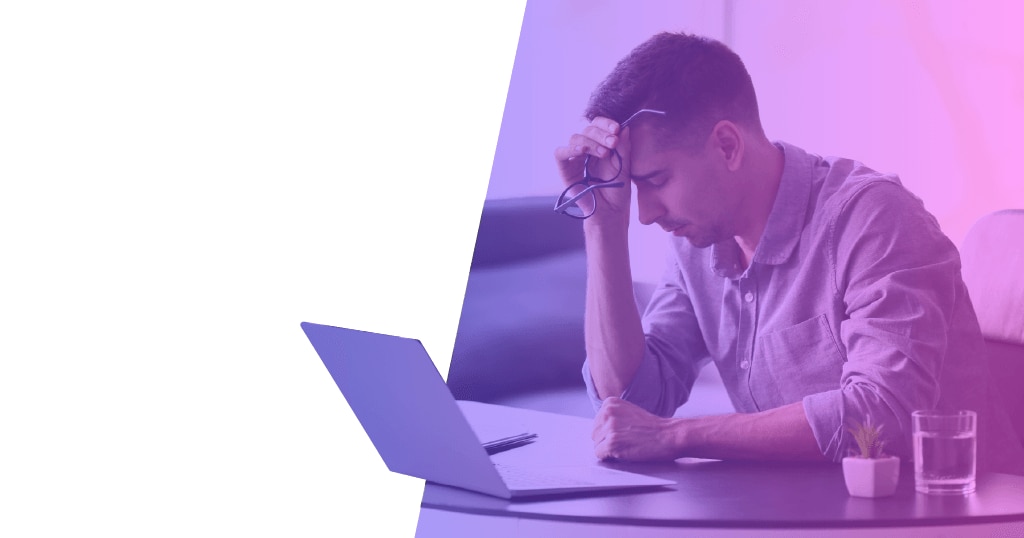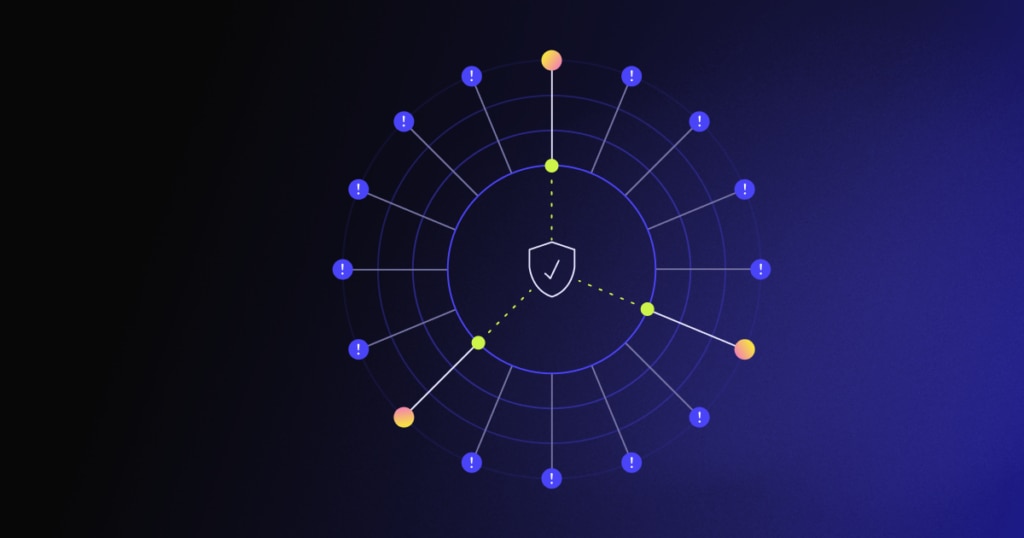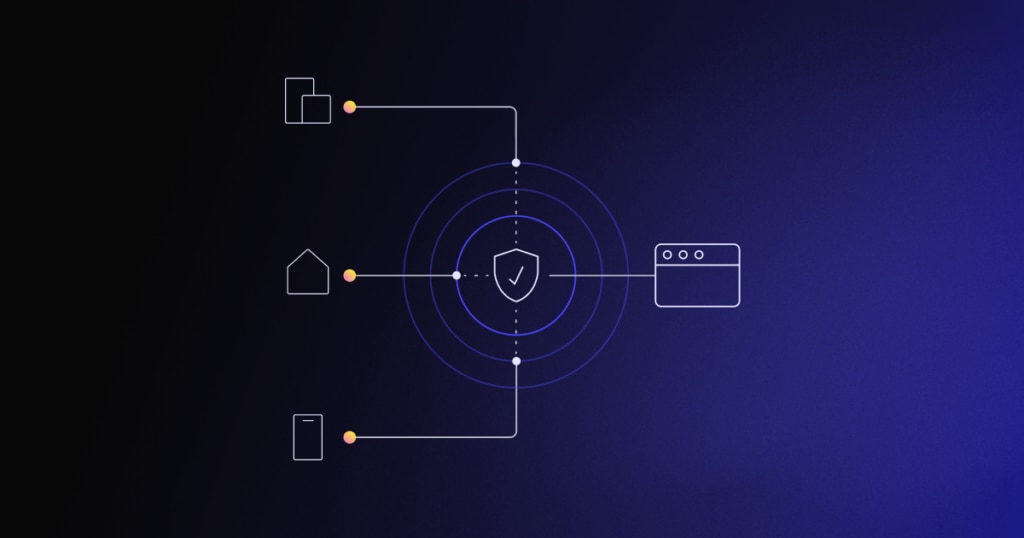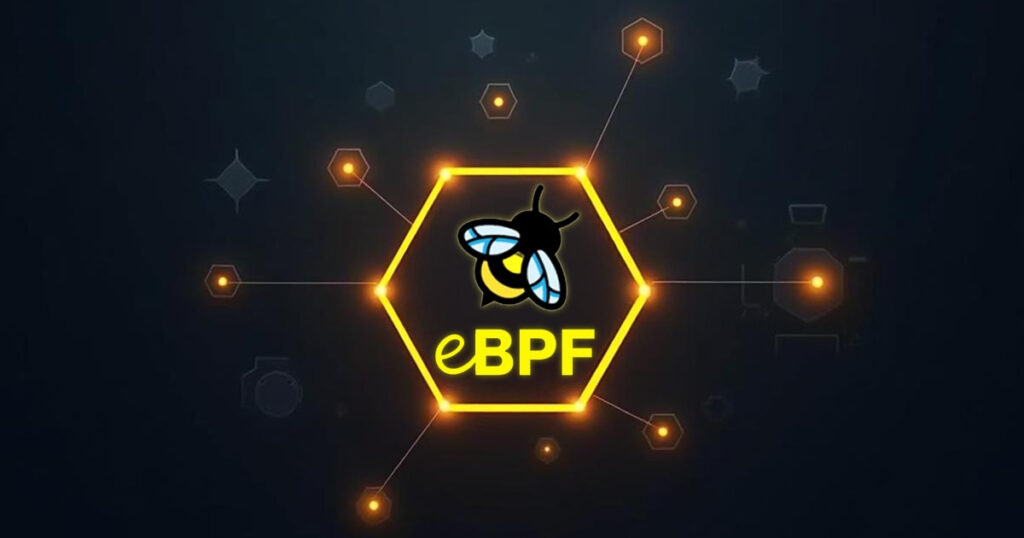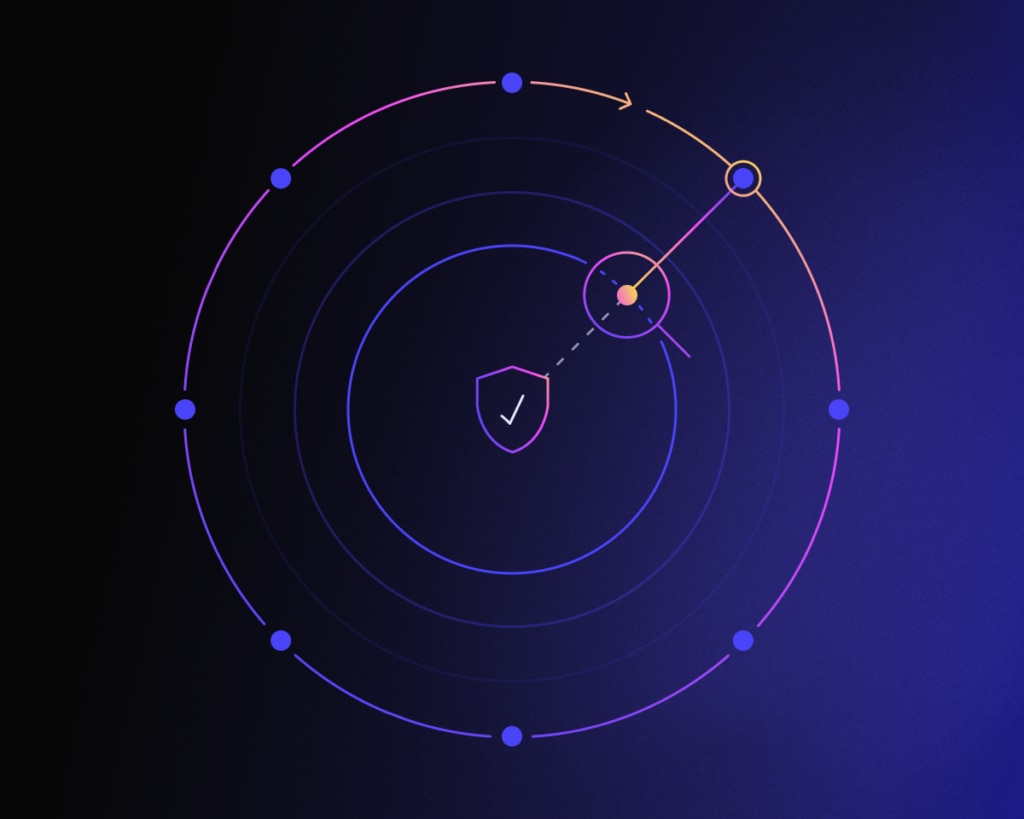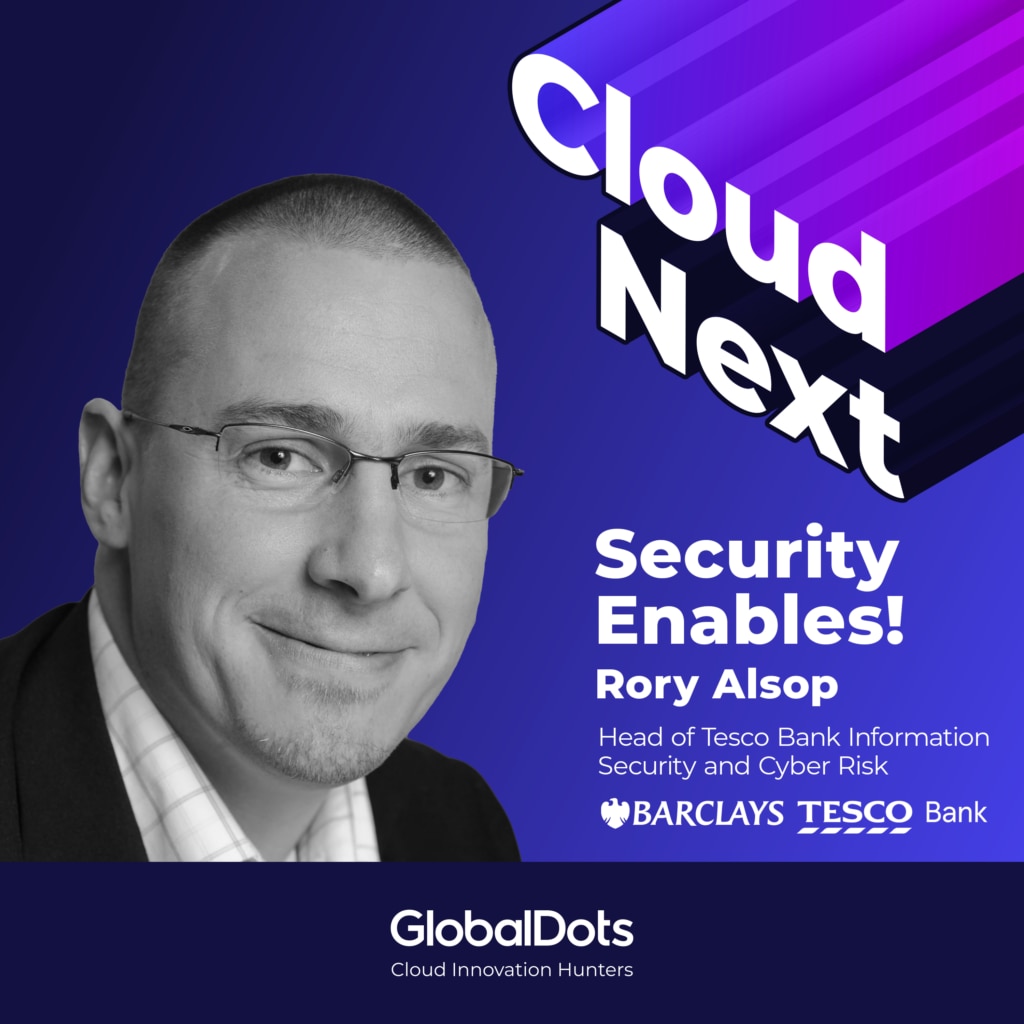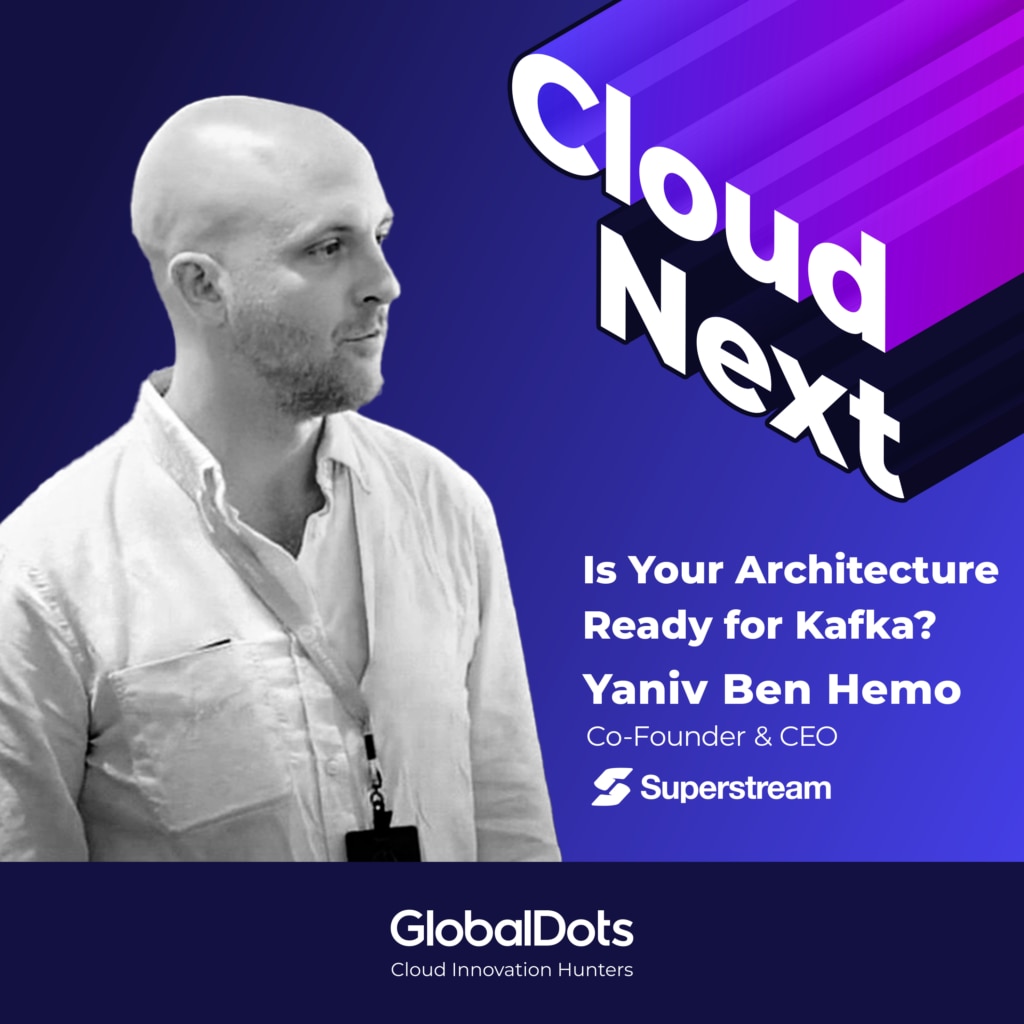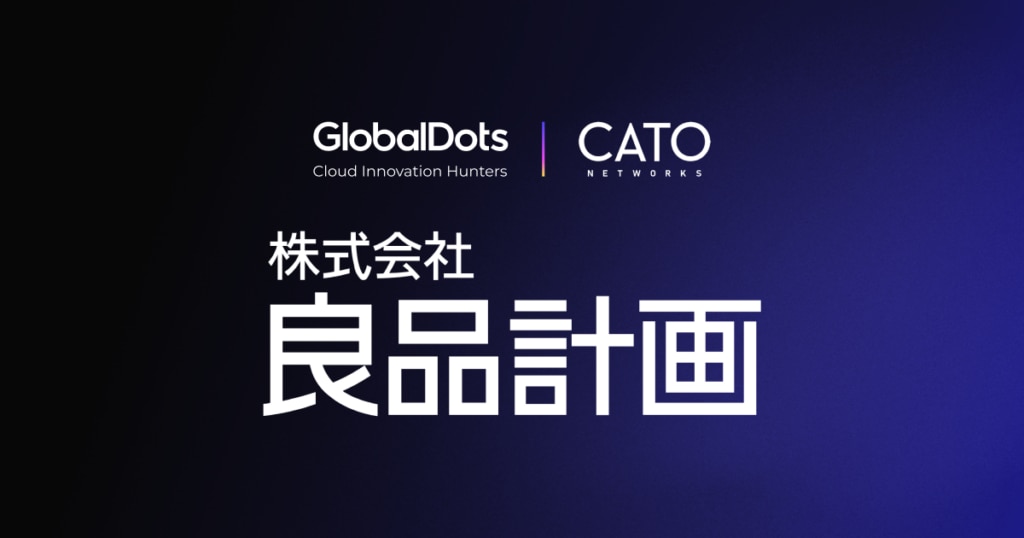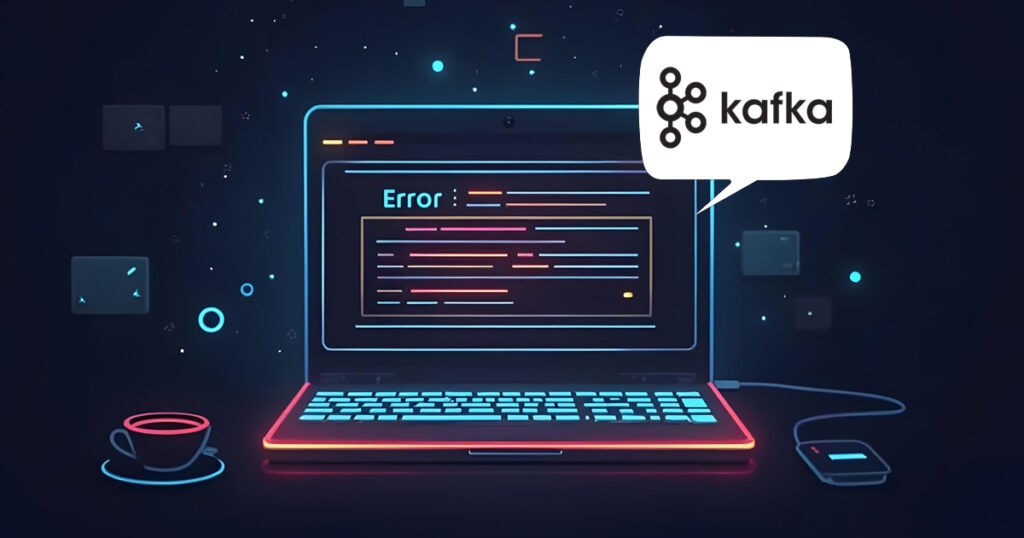This transcript was generated automatically by AI. If you find any mistakes, please email us.
0:00:00
(Speaker 2)
Hello everyone, you're listening to Cloud Next, your go-to source for cloud innovation and leaders insight, brought to you by GlobalDots. We usually don't talk about ourselves and this time won't be any different, at least not too much. This month we hosted our first ever customer event at Bloomfield Stadium, and took the opportunity to learn
0:00:30
(Speaker 2)
from our customers' experience. Hi, everyone. I'm Toma Movidan. I produced this podcast, Cloud Next, for GlobalDots. Our beloved podcast host, Ganesh The Awesome, was too busy researching innovation so you don't have to,
0:00:44
(Speaker 2)
and that is why I'm here to sub in for him. We sat down with our customers and took a dive into the real challenges they face in the cloud world. Before we start, as always, we invite you to join the conversation on LinkedIn. Let us know your thoughts, who you'd like us to talk to, and what topics should we tackle next. Now, without any further ado, let's hear from industry leaders about the issues that keep them up at night and how they're dealing with them.
0:01:15
(Speaker 2)
Okay, so first of all, could you please present yourself?
0:01:18
(Speaker 1)
Alex Neistat, I'm a head of product security for Celebrate. And what led you to this profession? Oh wow, I guess that's the most exciting part of the IT world. Unlike anything else where you sort of compete with yourself in cyber security, I'm a cyber security professional, you mostly compete against the bad guys. So it's like a chess game.
0:01:44
(Speaker 6)
You enjoy your day to day. Is it like if you could go back in time and explain to the young Alex that this would
0:01:52
(Speaker 1)
be his profession, would he approve?
0:01:55
(Speaker 13)
Definitely.
0:01:56
(Speaker 6)
Yeah.
0:01:57
(Speaker 1)
100%.
0:01:58
(Speaker 6)
It was a dream, a childhood dream?
0:01:59
(Speaker 1)
Absolutely not. I wanted to be a pilot like yeah 90% of the kids of course What is one of the main challenges in cloud that you wish you had a solution for Wow? again, I'm looking at anything and everything through the prism of the cyber security and loud a world is super challenging, it is super dynamic. You have vulnerabilities coming every day.
0:02:34
(Speaker 1)
You can start your morning with a clean plate and in the evening you have hundreds of vulnerabilities. You need to prioritize those. And unlike other domains in the cloud, you need to be very sharp because if you decide to mitigate everything
0:02:53
(Speaker 1)
then you basically burn the precious time of the developers and if you deprioritize something wrong well the bad guys are knocking on your door. I bet you go to a lot of these events and from time to time people try to sell Absolutely. How do you vet a solution? How do you choose a solution and know that that is the right one for you? So first of all, nobody ever sold me anything at an event. It is absolutely impossible to catch the, not just to catch the eye, but to gain confidence,
0:03:32
(Speaker 1)
to gain credibility of any salesperson. So that's first. But the way to get to me to be able to schedule a follow-up meeting with me is not by telling how great the solution is, but by explaining the problem. And they're convincing me that the problem is important,
0:03:58
(Speaker 1)
important for me, making me sort of bubble up this problem in my priority list, and then I'm definitely going to want to hear more.
0:04:10
(Speaker 2)
So all the sales people out there, this is a good advice,
0:04:13
(Speaker 6)
a solid advice.
0:04:14
(Speaker 1)
Absolutely. One last thing, we always ask this question in our podcast, we dubbed it the Bellorium question, if you can go back in time and give yourself one piece of professional advice before starting, what would it be? Do hands-on.
0:04:30
(Speaker 1)
Do a lot of hands-on when you're a junior. Don't rush into management tracks, don't rush into titles and the grades and whatnot. Do a lot of hands-on. This is what builds you as a professional. And based on that professional experience,
0:04:47
(Speaker 1)
you will be able to build yourself. That's what your intuition stands on when you need to prioritize, to select, to communicate. Super important. Do that. I wanted to follow up on that,
0:05:02
(Speaker 1)
because I believe a lot of great IT people or great cloud engineers, whatever, are not always the best managers, and the best managers are not always the guys who know the real deal, right? Yeah, that's a good observation.
0:05:19
(Speaker 1)
And by the way, there is also a definition of a good manager, a good people manager, and a good business manager, and good operation manager, and that's not quite the same as being a good expert.
0:05:36
(Speaker 12)
So...
0:05:37
(Speaker 1)
Yeah, it's a hard one. I'm not sure, I'm not sure, yeah. Maybe I'm lucky to be a people person, not just a technology guy. But in general, I think that the most important quality of a manager is confidence.
0:05:56
(Speaker 1)
And this goes back to my previous answer. You need to be confident and the confidence is built on your professionalism and your knowledge and the true knowledge you can gain only by working on something with your fingers and that's what kind of builds you. It is a foundation for going up. I completely agree again. I think that any manager and in any field who doesn't have enough knowledge will be insecure
0:06:32
(Speaker 1)
and will act from his insecurities. Yes, not necessarily. We will see great managers that are coming from the army for example and they're not any good in low level management but as executives, they are able to make smart decisions, fast decisions, and they're not afraid of making those decisions. And in some cases, not having the technical background
0:07:01
(Speaker 1)
might be a blessing, but hey, that's when you're really high up. If you want to build yourself there, you need to walk a few steps, and those steps you walk with your technical background. One last question, do you have any recent innovation that you can recommend or a source
0:07:26
(Speaker 1)
of information you use? Actually, good question and you will like my answer. The best source of information about the industry is attending conferences. That is the best opportunity. You do not go and contact and look up tons of information and scrolling through or trying to surf
0:07:51
(Speaker 1)
between the marketing bullshit. You're able to meet people, interrogate them, and that's phenomenal, right? My first experience of attending Black Hat, Black Hat is the number one cyber security conference. It was probably 15 years ago.
0:08:11
(Speaker 1)
EDR was a big thing. And I managed to interrogate within one hour, three, leading of EDR business. And I gained all the information I wanted that was phenomenal so go to conferences. Beautiful great answer great answer thank you very much. Sure. First of all could you please introduce yourself? Yes I'm Inachi Momi actually
0:08:44
(Speaker 3)
I'm the sister of Lusha I started like three four months ago it's like a promotion for me.
0:08:52
(Speaker 6)
Wow, congrats.
0:08:53
(Speaker 3)
Yeah, I'm 25 years in the industry. I work in like 20 years at Amdocs, many positions, DevOps, security. Then I left to Anaplan, which is analysis planning. It's a SaaS company. I acted there as the director of security, product security. And now I'm at Lusha doing a lot of interesting stuff
0:09:17
(Speaker 1)
now. And what is the biggest challenge you encountered, like you're telling yourself, my God, I just
0:09:25
(Speaker 2)
came here. Data. How I will protect the data. I feel like everybody's talking to me today about data and security. And the big fear is that there are stuff that we still haven't imagined, right? You need to prepare yourself not to the stuff you already know. What you don't know. So what is the day to day job looks like?
0:09:51
(Speaker 1)
Do you imagine you put yourself in the shoes of a burglar, of a hacker?
0:09:57
(Speaker 3)
Yeah, I can tell you my day is different. Every day is like a different story. There are some days that are very planned. I need to go on my risks, have some meetings with the team, with development team, DevOps,
0:10:12
(Speaker 3)
prioritize, wonderful. There are other teams that we have, we have critical staff, where critical incidents, alerts coming from our Synsoc managed service that we get. So we need to address that.
0:10:26
(Speaker 3)
Then we prioritize what we are doing. Okay, we do see some issues, gaps, so we need to prioritize. We have our customers. We had a lot of customers, I want Lusha. So how much is secure? So we need to answer.
0:10:42
(Speaker 3)
A lot of security questionnaires. So you see, it's lots of things.
0:10:47
(Speaker 2)
Yeah, sounds very stressful.
0:10:50
(Speaker 1)
Yes. My luck is that I have very big children. You know, they are teenagers. So I think I got a medal. I need to get a medal. Only for that. I have a wonderful husband. That during the whole 25 years, you know, he was very supportive.
0:11:09
(Speaker 1)
And now I'm investing myself in the career, in learning all the time new stuff coming here to the conference. I'm gonna ask, I want to ask you about the conference but before I go there yeah I sat today with a couple of interviewees here most of them males, none of them mentioned the family aspect. Only me?
0:11:31
(Speaker 1)
none of them and I'm afraid it's because it's harder for a woman at your position. You need to calculate the family also. So one question, I don't know if you have the answer, but why do you think there's not enough women in this
0:11:49
(Speaker 6)
industry?
0:11:51
(Speaker 2)
I think one of the reasons is to balance between being perfect at home and being perfect at work. I don't think it's possible. I don't believe in... you know, you don't need to be perfect. You don't need to be perfect. You're perfect as you are, what you do. As Leonard Cohen once said, forget about your perfection. There's a crack in everything.
0:12:18
(Speaker 1)
That's how the light comes in.
0:12:19
(Speaker 3)
Exactly. So I think that comes with the maturity. When I was younger, I wasn't trying to focus on both. I didn't think I will have the time to be excellent here and here and here. Now that I'm more mature, I think I will never be perfect here and everything, but at least I'm happy. I'm happy when I'm at home, when I'm cooking, when I'm doing some stuff with my children. And I'm also happy at work when I have lots of challenges, a very large team that innovate, doing great stuff.
0:12:52
(Speaker 2)
So I'm trying to get enjoy from all of this.
0:12:57
(Speaker 1)
Do you ever have the feeling that people treat you differently because you are a woman in this role? Or do you feel there's a change?
0:13:05
(Speaker 3)
I feel there is a change. I don't feel special. And I feel there is a change. And I'm being respected. You know, people respect me, yeah, as I am. I think that it's not about the gender, I'm coming with my professionalism,
0:13:22
(Speaker 3)
from the experience, from what I did and what I would like to do. And so I don't feel different.
0:13:29
(Speaker 1)
That's great news to hear. I was afraid to hear a different answer. That's great. This is what I feel. We had some female CISOs here a year ago on this podcast and we heard hard stories from the past, but a lot of the recent interviewees, like you, are saying there's a change.
0:13:53
(Speaker 3)
Yeah, and what's...
0:13:54
(Speaker 1)
This is a great feeling to hear about it. Yeah. At your role, and we are at an event, and you probably get invited to a lot of these and you get calls from salesperson, emails, LinkedIn, right? How do you vet a solution?
0:14:15
(Speaker 3)
How do you say I'm going to go with this one? When I'm starting to look on solution, first of all I'm doing like a deep research what I really need first. I'm assessing what are the gaps, where are the risks that I need to focus and when I'm very focused then it's very easy for me to approach and not to answer. I like to be proactive and not reactive. So I'm not answering all the phone calls I'm getting and not all the LinkedIn's. Sorry guys. I'm answering nicely to some
0:14:48
(Speaker 3)
of them, it's not prioritized right now, it may be in the H2, maybe next year. I'm working with my plan so I'm very focused on that, on the priorities, what's important for me. If there are things, something that can bring lots of ROI and also will save some of my problems then that's fine but I'm focusing on what's really urgent for the company and not what is shining and what's a sorry guys I know there is a lot of shining tools yeah but I'm doing what's best for Lucia.
0:15:25
(Speaker 3)
How do you research the solution? Okay so you know I'm looking at Gartner what's solutions I mean we have a group Cyber Ladies we have lots of professional networks that we ask about our challenge and what kind of problems, what kind of solution can help these problems. So we have this networking, these conferences like this, so it's also a very good idea to hear about the new startups or the new solutions that can help us. So this is, of course, those are the leads, but eventually we are doing a POC, you know, choosing like two, three solutions and doing it per process. I see so everything is...
0:16:11
(Speaker 3)
Everything is strict.
0:16:12
(Speaker 11)
We have a process.
0:16:13
(Speaker 6)
Do you tell your children? Do you give them the same answer when they ask for your toy? We have a process.
0:16:19
(Speaker 2)
My children sometimes, you know, they are teaching me.
0:16:23
(Speaker 3)
Yeah, they are, you know, always looking on it's not, let's not waste money. Really? Yeah, because they are working. They have like some jobs that they are, you know, for children. So they are value, the value is, so sometimes they tell me, you know, this is very expensive.
0:16:46
(Speaker 3)
I don't think we need it.
0:16:52
(Speaker 9)
I never said that.
0:16:53
(Speaker 3)
So I'm getting to my stuff. So my children, they told me, Ima, money, you don't really need it. So why?
0:17:03
(Speaker 1)
Inat, if you could go back in time, until literally Inat, this is what you're doing today, would you be surprised, proud?
0:17:13
(Speaker 3)
I would be very proud because when I was 18 or 15 I thought I would be a teacher. Wow! Look at you! This is what I thought. Because I loved math, I loved children, I thought I'll go that route. I think I will be very proud because when I'm looking at me, I'm looking at like successful woman and I have a beautiful family that I'm very proud of and a very you know supportive husband and the career I'm very happy you know maybe I would tell myself you know
0:17:53
(Speaker 3)
you don't be not need to be shy or modest yeah this is what was my next question this is what something we always ask if you can go back in time give yourself a piece of advice before starting. So don't be afraid and you are very smart, you are very strong and go for it. Everything that you think that you deserve or want, go for it. You know, give myself more confidence because I think I had,
0:18:19
(Speaker 3)
but I think if I had a little more, then I would do it faster, even faster. But I'm good with that.
0:18:27
(Speaker 1)
I got to tell you being a manager is being a teacher of it, right? So you're doing what you wanted to do in a bigger scale. Yeah, and much more money. One last question, but before we finish for other CISOs out there listening, is there innovation you used, a solution that you would recommend to people listening that maybe they haven't thought about?
0:18:57
(Speaker 3)
You know I loved... it's not something new, yes? But whenever I'm coming to a new position, there is always... you know, you can always improve by bringing new shining tools. But there is, you know, the little things, the little things. If it can be an automation, it's relationship with people. Yes, there are good tools,
0:19:26
(Speaker 3)
like in the application security posture management and all the crowdsource penetration testing data, I love it. But you know, I really love to invest on protecting data. This is my passion. And this is not about innovation in technology, it's about people. Know the people, know the... This is like my two cents, you know. Understand the dynamics, the processes, and this is the key. When you build this trust, and this is even my,
0:20:06
(Speaker 3)
you know, if it's in my LinkedIn, if you build this relationship and trust, you know, everything is much, much easier afterwards. And you can bring whatever you like. You know, there is a very good foundation that you build with the people, with the organization.
0:20:25
(Speaker 3)
And then if something, someone from my team would like to bring a new tool that they heard about in a conference, why not? Let's do POC together. So it doesn't matter which kind of tool. So I found it a very important key. And then everything that we brought after that was fruitful.
0:20:50
(Speaker 2)
So people first,
0:20:52
(Speaker 1)
innovation is second. The people is much more important.
0:20:56
(Speaker 3)
Yeah, because it comes with that, when you have this coming to the office, the small talks in the kitchen, so the innovation is when you talk, you have good ideas,
0:21:08
(Speaker 3)
it comes, so I love it and I love to see those fresh minds,
0:21:14
(Speaker 2)
people coming from you know different angles.
0:21:18
(Speaker 1)
Perfect. Eina, thank you very much for your time. I enjoyed it.
0:21:22
(Speaker 3)
You're welcome. Me too.
0:21:24
(Speaker 2)
Hi, I'm Sagi, VPR at Diobe Watch. I've been around in the tech industry for the last 2-5 years. What brought you to this profession?
0:21:36
(Speaker 6)
Oh, the army. The army.
0:21:38
(Speaker 2)
The regular. The regular, yeah. Mamram, alumni, and all that, 25 years ago.
0:21:43
(Speaker 1)
And it was clear to you that when you finish the army, you keep working in this profession?
0:21:48
(Speaker 6)
Like this is your passion? Oh yeah, for sure, for sure. On a very young age. If you go back to the young self and tell him this is what you do for a living, would he be proud?
0:21:59
(Speaker 2)
I love it.
0:22:04
(Speaker 11)
That's rare, you know.
0:22:06
(Speaker 2)
I appreciate it every day. I know that and I appreciate it every day.
0:22:10
(Speaker 6)
You probably get invited to events all the time and people try to sell all the time. How do you vet a solution? How do you say this one is...
0:22:24
(Speaker 2)
I'm going to listen to you. So, there are a few things. First of all, there must be a need for this, right? I can't, you know, I won't buy something if I don't, if I don't feel the pain. That's, I think, the basics. I give a lot of weight to recommendations. The very global dots, I trust them, you know, 100%. So whatever they tell me, okay, let's do that. So it also depends on personal. Let me just tell the listeners we didn't pay you. No, no, no, no, no, no. I trust the Lord. I know the people there for a very long time.
0:23:01
(Speaker 2)
I know they're behind me and they want my good. So what I understand from what you're saying is trust is the most, knowing the people and trusting them. Look, everybody wants that, right? Yeah. But if someone I know, you know, and I trust them and I have good experience with them and they tell me you need to try this, you need to do that, then, you know, I... Isn't there a risk of missing out something just because you don't know the person or, you know, the beautiful solution that works? True. I think, you know, There's not always the one product or the one service that you need.
0:23:41
(Speaker 2)
There are good services and there's cause and cons to everything. So if someone who's very experienced in that service, product, whatever, I'm not the expert in everything. That's why we have GlobalGuard, we have other contractors. So if they tell you, and I trust them, they tell you, listen, this is the product you need. What is the, like, if there was one thing you can solve with the pressing of the button,
0:24:13
(Speaker 2)
what is the main challenge you would want to solve? Well, today, I mean. Yeah, what bugs you the most? I'm not sure it's around the theme of global dots. I think the velocity of our development, how fast can we develop things, I think for now, for many reasons, that's my job, to analyze it and make it better.
0:24:39
(Speaker 2)
I'm not satisfied enough, but I think it's something that we work on. What is the main setback? I don't know if there's one thing. It's a combination of a lot of things. Because what I'm doing is I'm thinking about our listeners and somebody in your position who might say,
0:25:01
(Speaker 2)
hmm, I have the same problem. So I'm trying to, so it's the process and the people and the culture and how we do things, the methodology, there's a lot of things. It does how passionate your developers are. It does tons of things. And you need to work in many vectors in order to get things done.
0:25:26
(Speaker 2)
So I'm doing that and I think we can improve even more. You are a people person. Oh yeah. That's what I... It's always... It's about the people.
0:25:36
(Speaker 1)
I think eventually... It's not just the people but yeah.
0:25:40
(Speaker 6)
If you can go back in time, and this is the question we ask everybody, we dubbed it the DeLorean question, and give yourself one piece of advice before starting your professional career,
0:25:51
(Speaker 1)
what would it be? Oh wow, I need to think about that for a second.
0:25:55
(Speaker 2)
Take it easy.
0:25:56
(Speaker 11)
That's a good advice for life.
0:25:58
(Speaker 1)
Yeah, I'm not sure I'm following it.
0:25:59
(Speaker 2)
You see my hairline is coming down. Mine also. Could you share a recent innovation that you could recommend to our listeners? A solution you encountered and fits great. I've started, you know, it's the AI era and I've tried to, you know, start playing with all these solutions and all that. And I think not as a solution for everything,
0:26:31
(Speaker 2)
but the fact that you can run AI on your local computer, you don't even need to PC and all these things that you need to pay for. You can actually download models, looks like whatever downloaded to your computer. If even if you don't have like a crazy,
0:26:49
(Speaker 2)
computer with five CPUs and whatnot. You can run AI on your machine and start playing with it, even small stuff. And I think that's mind blowing and that's something that changed the paradigm of how you think, how you develop.
0:27:04
(Speaker 2)
So that's one. And the other thing is all the new ideas with AI. You basically don't code anymore, you just tell them what you want and they do it for you. It's not perfect yet, but every month that goes by, you see the progress and what they can do
0:27:25
(Speaker 2)
and how good they are, it's great.
0:27:27
(Speaker 1)
But isn't there a big challenge coming with AI,
0:27:31
(Speaker 6)
a big security challenge?
0:27:32
(Speaker 1)
True, true, it's a challenge. You're a people person and you're a risk taker, right? That's what I get from this.
0:27:41
(Speaker 2)
I'm not sure I'm a risk taker, but yeah, I mean, I work in a startup, so I think it's a... It's a world of risk, right?
0:27:49
(Speaker 6)
Thank you very much for your time, I enjoyed it. Fantastic, thank you.
0:27:51
(Speaker 2)
Could you please start by introducing yourself?
0:27:54
(Speaker 1)
So I'm Anna Lerner. I'm Senior Director in SolarEdge. I'm in charge of automatic testing equipment on the production lines all over the world of the SolarEdge. And actually what brought me here is mainly interest how I could protect my software. I have many teams, developers that are developing a production line. but still we are experienced lately, experienced a lot of issues and the tags and my CISO is having a hard time to track everything.
0:28:31
(Speaker 1)
So I'm here.
0:28:32
(Speaker 2)
What is the main challenge you is having?
0:28:36
(Speaker 1)
Well, I think that basically the main challenge
0:28:38
(Speaker 3)
is the AI today. It's developed quite a lot and everyone wants, every developer right now is like, it's a hot topic. We don't want to try new things, but I have no idea where it's going back to us from a security perspective. It's quite challenging because I myself, I'm a developer as well, and from that perspective, I want to try new things. How do you balance between the developing side? You want to go fast, but security is always at the last phase
0:29:15
(Speaker 3)
and then the CISO comes from the company and says, okay, okay, I'm blocking you. So basically that's the point.
0:29:20
(Speaker 1)
Yeah, and I actually heard that most companies that are investing right now, they invest about 97 of their budget in development and only three to 1% in security, right? And then the slap comes when you have a problem.
0:29:38
(Speaker 3)
The slap, yeah. It's quite interesting actually because we know in our minds that it's important, but as you said, it's always the last thing that we need to take care of, the last thing that you want to look at it or invest any effort. And to tell you the truth, developers don't like it. Every time something is blocked, they're pissed. They're like, okay, I'm blocked. First response is, why are you interrupting my work?
0:30:12
(Speaker 3)
You set them back, right? Yeah, of course. And I understand it from a developer's perspective. As a manager, I actually push them forward faster, faster, faster. Okay, more features, more stuff, more quickly. And then they come to me and say, okay, I'm blocked.
0:30:29
(Speaker 6)
And what do you say?
0:30:30
(Speaker 1)
Okay, there are two solutions. First of all, I need to mitigate the risks. Okay, so I am working in a closed environment and the chances that sound like something is going to be impacted is pretty low, but when it happens, it's 100%. I need to mitigate the risks basically.
0:30:48
(Speaker 1)
And as long as I'm on development environment, I don't really care. But on production I cannot afford any risks. Now we are in an event, right? And people are trying to sell. And there's always people at not only in events, right? People call you, they email you, they bug you every day.
0:31:09
(Speaker 3)
LinkedIn, everything.
0:31:10
(Speaker 1)
How do you vet a solution? How do you decide this is the one for me?
0:31:16
(Speaker 3)
First of all, there is a price. I like open source. I like stuff that come to me and I can edit the code and I have full control. Second is how well it fits my needs. Because at the end of the day, this is my daily job. This is what I need to... it may be a wonderful solution, but if it's not easy to apply for me and it doesn't give me 100% of what I need, I'm going to search for a better one.
0:31:38
(Speaker 3)
Let's talk a bit about you. Yeah, okay. What led you to this profession? that it will take me 10 years and I was searching for something faster. So it was a hard topic and I had no idea what I'm getting into it. I started studying this, Operating Engineering, it's been pretty easy.
0:31:59
(Speaker 3)
And at some point I went as a student in Intel. The rest is history as you say. Yeah. And if you go back to the young Anna and tell her this is what you do now, what would she
0:32:13
(Speaker 1)
say?
0:32:14
(Speaker 12)
Would she be mad?
0:32:15
(Speaker 3)
No, no, definitely not. It's pretty amazing what I managed to accomplish with the profession that I had no idea what
0:32:23
(Speaker 7)
it is.
0:32:24
(Speaker 1)
I haven't seen a computer till I was 12. So you know, when I saw a computer, I was like, okay, that's center.
0:32:31
(Speaker 3)
Let's start pressing it. And to come here, I guess it's pretty amazing. Yeah. Yeah. Well, the world has changed. You should be proud of yourself. You should be.
0:33:01
(Speaker 7)
My husband helps me to be proud of myself.
0:33:04
(Speaker 1)
But if you could go back in time and give yourself one piece of advice before entering this profession.
0:33:10
(Speaker 7)
new technologies, new jobs, new everything. Don't be afraid. This is a great advice for life, not only for the...
0:33:18
(Speaker 1)
Probably, probably, yeah. It's hard to implement.
0:33:22
(Speaker 2)
It's much easier to work.
0:33:24
(Speaker 7)
Yeah.
0:33:25
(Speaker 11)
Anna, thank you very much for your time and your insights.
0:33:28
(Speaker 2)
Thank you.
0:33:29
(Speaker 1)
Hey, I'm Chris Bengalone, I'm coming from the Department of Security in Ellops. I'm the DevOps Manager Leader. What is the main challenge you would like to solve? There is a lot of challenges in DevOps. You know, it's every day, every moment, 30% on. So you need to be in front of all the statistics,
0:33:58
(Speaker 1)
and get in more innovation, and understand the facilities and understand the companies and understand the clients and the customer and the stress. And in the end, we are achieving the goals.
0:34:11
(Speaker 5)
The goals to prevent everything.
0:34:13
(Speaker 1)
Yeah, but how do you manage the need for innovation to keep going and always security is always the setback, right? It's always like, wait, stop, you can't do that. How do you balance that? This is a very good question and in this moment we are trying our best. There is not just best effort, there is more than that. We are dealing
0:34:36
(Speaker 1)
with something that is not aware, nothing is on chat GPT or any other place. This is something that we need to find by ourselves. So the challenge of a DevOps engineer is not just to save or maintain or doing some support on new things or planning tasks. It's more just, not just support, it's more to be online all the time, online in the lead of any new department,
0:35:06
(Speaker 1)
new challenges, new topics that come in. It's not just reading that, let's say for example, we need to do something because vulnerabilities was saying that we need to change this product to something else and this will tell to no it's more than that taking the same sequence and same possibilities and to understand that there is a lot of them not just innovation not just a
0:35:32
(Speaker 1)
Solutions also future solution. Okay, there is a something that called in AWS, predicting. We need to predict what will happen.
0:35:44
(Speaker 5)
This is something that we need.
0:35:46
(Speaker 1)
So it's like you said, you need to think like the criminal. Yeah, and this is the problem that you become in the beginning.
0:35:53
(Speaker 6)
We are now...
0:35:54
(Speaker 5)
You will need to understand something else. No, no, go ahead, sure. that come in from a DevOps, a SecDocs, a DevOps, or DevOps that prevent the initial contacts becoming to be the criminal by themselves. Yeah.
0:36:08
(Speaker 5)
Okay, so this is something that I need to prevent for my employees. For your teams.
0:36:12
(Speaker 10)
Yeah, to prevent.
0:36:14
(Speaker 9)
Don't give them ideas.
0:36:15
(Speaker 1)
Yeah, we'll give them your money. Don't leave, that's it. Because that's the employee. We are now live recording from a cloud hub event, Cloud Hub event and you probably go to a lot of events. You probably get a lot of calls, emails,
0:36:32
(Speaker 1)
people trying to sell you every day. How do you vet, how do you check an innovation and decide what to go for? I'm in the last, I was taking everything, okay? Taking everything that would help me. Now I'm more and more trying to
0:36:50
(Speaker 1)
Dedicate it just point by point and not taking everything taking the right thing to the right project Okay, there is a lot of project of mine my side that using different tools different also systems and This is the customer pays
0:37:18
(Speaker 2)
We need to be in both of them. This is the problem, but
0:37:22
(Speaker 1)
the the things that every event like that doing is giving you more ideas. What I'm coming to is to get ideas and the ideas is not just to buy the license or something related, it's easy to get the license and start working with it. It's also to understand how they think.
0:37:47
(Speaker 1)
If I'm thinking different, the result of the solution is the same answer, same question.
0:37:54
(Speaker 2)
So we're trying our best to take the ideas and to implement them.
0:38:00
(Speaker 1)
Is there any recent innovation solution that you implemented that you'd like to recommend to our listeners? I like this department. Oh, Cast.ai. They've been doing something different until I saw all of them. All of them doing the same thing. They do something different.
0:38:23
(Speaker 1)
They're thinking like me, and this is something that they took more extra mile, I see, and maybe this is something that they can... What is the core thing that... They actually, in the end, everything is money. Of course, we know how to do our work, but we need also to not waste money to the customers. And this is something that's come in a lot of time
0:38:51
(Speaker 1)
with my conversation with customers and with conversation with my manager, that we, in the end, we put in every limit. We need to limit ourselves. We cannot go to the cloud and say, lose all your capacity and that's it.
0:39:07
(Speaker 1)
Whatever come, whatever will come. As long as we're keeping ourselves to be safe. But in the end, someone paying this bill. Yeah. And this bill is coming to you bill be your bonus salary. Sorry, decrease your bonus salary. So one last question I'll let you go it's the the lowering question that's the way we like we like to end our conversations if
0:39:30
(Speaker 1)
you can go back in time and give yourself one piece of advice. Look I'm coming from developers, engineers, from the study and I became into be infrastructure and after becoming doing DevOps. I would prefer to be opposite to come from the developer to the DevOps. It's hurt me in a couple of one or two years and now I study better so... Yeah that's a good advice for up and coming. They need to know that infrastructure IT guys
0:40:05
(Speaker 1)
cannot be pure devils. I'm sorry that I'm saying that, cannot be pure devils. They can be like operation and doing the things that we're doing every day and supporting. But thinking like the developers,
0:40:22
(Speaker 1)
this is must to be ability and something of quality of the employee.
0:40:28
(Speaker 6)
Alon, thank you very much.
0:40:30
(Speaker 2)
It was great. Thank you.
0:40:32
(Speaker 8)
Bye.
0:40:33
(Speaker 4)
This episode was produced and edited by Daniel Ohana and Tom O'Morvinson, sound editing and mix by Bren Russell. I'm Ganesh The Awesome, and if you're ready to deep dive and start transforming the way you approach cloud practices and cybersecurity strategies, then the team and myself at GlobalDots are at your disposal. We are cloud innovation hunters,
0:40:52
(Speaker 4)
and we search the globe looking for the future tech solutions so we can bring them to you. We've been doing it for over 20 years. It's what we do, and if I don't say so myself, we do it pretty well. So have a word with the experts, don't be shy,
0:41:03
(Speaker 4)
So have a word with the experts, don't be shy, and remember that conversations are always for free.

